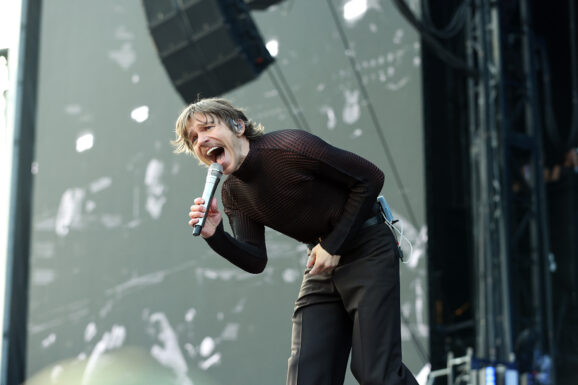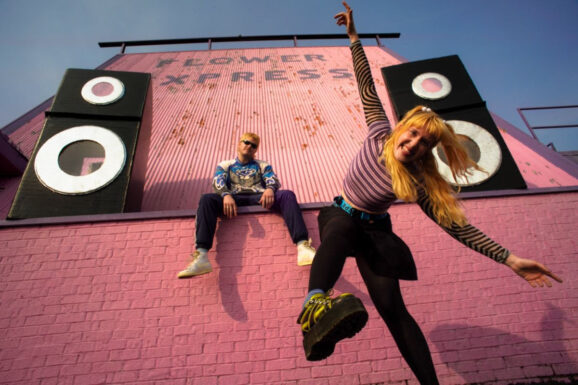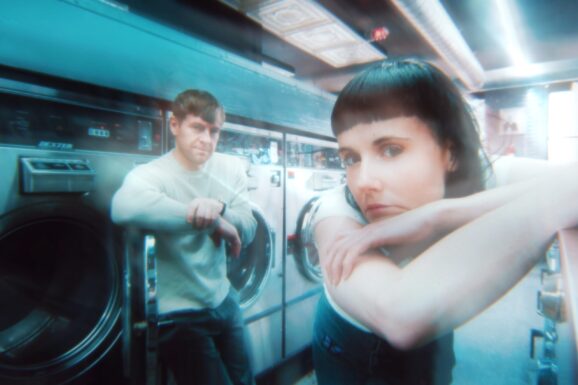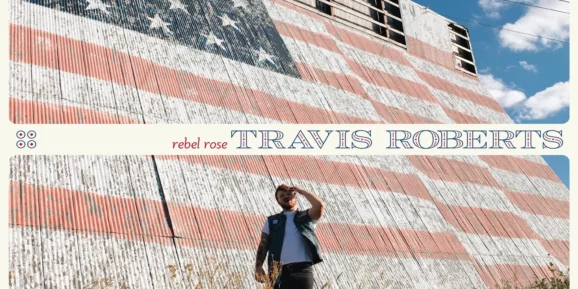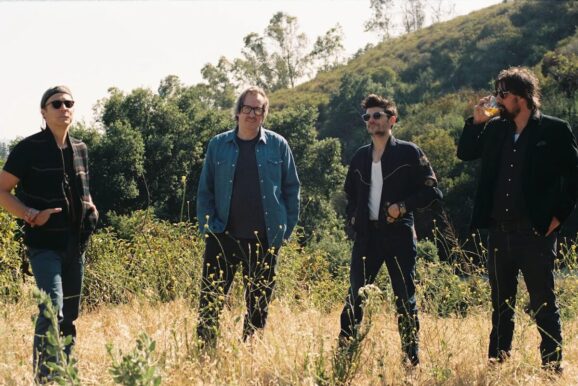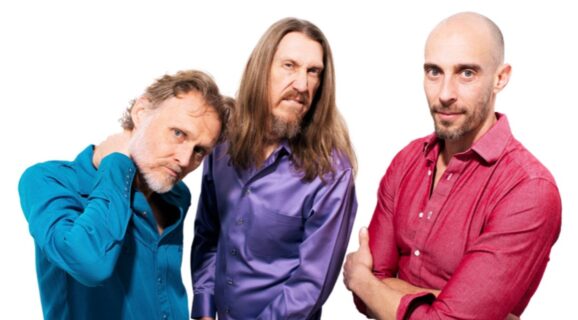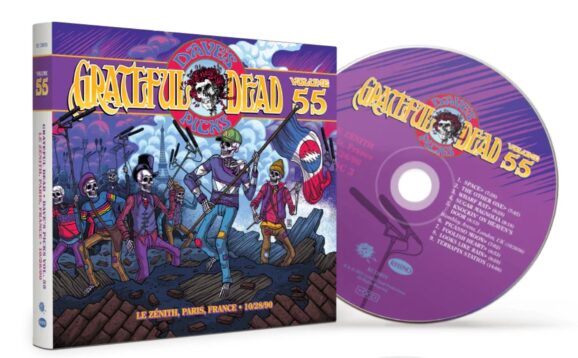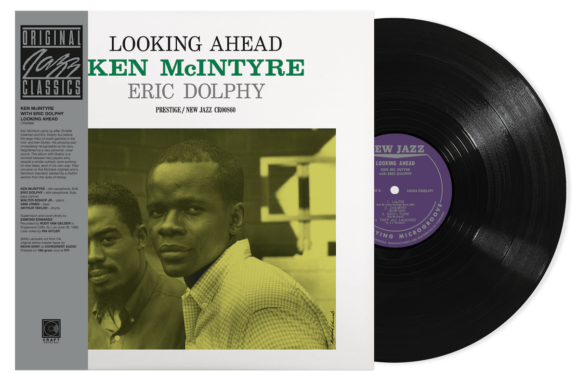Colatura may be a pop band at heart, but those melodies come part and parcel with a sharp veneer of noise. It’s a testament to that ambition that the band’s new EP, If I’m Being Honest, feels as open as it does. Breezy melodies co-exist with wave pools of guitar racket in what is somehow still a summer vibe release.
Frontwoman Jennica Best called us via Zoom from her home studio in Pittsburgh, where we talked about the band’s formation, the music that inspired her, and why the ‘90s may be back. Though she holds down guitar and vocals alongside her husband—guitarist and occasional vocalist Digo Best—the duo has two rhythm sections. There is one for Pittsburgh, where they reside, and one for New York City, where the band was formed and Best grew up. Touring means some mix and match.
One obvious touchpoint for Colatura is Alvvays, and Best was happy to have the influence noticed. “My favorite thing is to have the song sound cool but still be really catchy,” Best said.
Let’s say you find yourself in an elevator with Rick Rubin. Very distinctive guy. He’s got the beard. You recognize him. And he’s like, “You seem like a musician. Tell me about your band and what you’d want to accomplish in an album, the sound you want, and I’ll produce a record for you.” What do you tell him?
Well, sonically, I listen to a lot of shoegaze. Very washy, sort of loud wall of guitars. But, songwriting-wise, I like to be a little more intimate and raw with my vocals. Shoegaze is not known for having particularly loud or audible vocals. I love playing with the idea of very sort of quiet, intimate moments, and then loud, big wall of guitar moments. And, with the EP, we sort of really tried to play with those contrasting moments. So for me, for a record to be produced, I would want to sort of continue with that. Everything that we’ve recorded has brought in new influences, depending on whatever I’ve been listening to. The most important thing to me is being able to tell stories, to have the lyrics be vulnerable and specific to me, but also universal enough that they can resonate with other people as well.
It seems to me that Rubin wants people to be the truest version of themselves. What would make a quintessential document of Colatura, or is there just so much change based on what you’re listening to that there is no such definitive statement?
I just want it to tell a story. I want it to be able to explore where I’ve come from, from a bunch of different angles. When we put out our debut album in 2022, we thought a lot about the order of things and having the record have a journey of ups and downs and contrast throughout. That’s important to me. It needs pacing that speeds up, slows down, has some contrast within it. I love it when, in an album, not every song sounds the same. I like it when you can hear different influences in different songs.
What about formative influences? For people who love music, those teenage years are kind of everything, right?
I had sort of a fascinating musical journey because my parents are both opera singers, and I grew up almost exclusively around classical music. So from when I was little, my parents didn’t listen to much other than classical music and opera. We lived near Lincoln Center, so I was just completely immersed in that world. Then it was in maybe first or second grade that a friend of mine introduced me to the Beatles and sort of all the classic bands from the ‘60s and ‘70s. For the longest time, I didn’t really listen to much contemporary music. I pretty much stuck to The Beatles, The Who, and Pink Floyd.
Those are the meat and potatoes of great rock, though. Just because they’re common doesn’t mean they aren’t good.
I mean, it sounds generic, maybe, but The Beatles were the ones that made me want to be in a band. And back then, I only played piano. My grandmother was a piano teacher, so I had taken piano lessons with her, and I would sit down at the piano. I would try to write my songs, and they all just sounded like Beatles songs.
Well, there’s really something about the Beatles. They seem like time travelers and knew the future. They defined the archetypes and virtually any genre of rock that was going to be coming from the ‘70s onward, from metal to alt country to avant-garde. Did you ever play in a cover band, maybe playing a bunch of Beatles tunes?
No. I learned Beatles songs when I was younger. I didn’t play guitar until more recently, but I lived close to the Imagine Circle in Central Park, near where John Lennon was shot. Periodically, they’ll have these get-togethers where people will just come and sing, come with their guitars and play Beatles songs and stuff. So I did that a lot when I was younger, sort of like middle through high school.
Do you feel like the ‘90s are back right now?
Definitely.
What is it about the ‘90s that is making them current or relevant now?
I think it’s like every 20 to 30 years, things cycle back, although it feels like trends have been cycling through faster recently. I don’t know what that is about, but I think that the ‘90s have such an iconic sound and several different kinds of sounds, that it’s just a little bit timeless.
Moving into the present, how do you and Digo work together? Do you collaborate on the songwriting?
He definitely does some of it, but most of the time I will start the song, and then I’ll pass it to him and he’ll start producing it or he’ll help when I hit a roadblock with something. He’ll work on it for a little bit and then send it back to me. And it’s pretty collaborative in the way we pass things back and forth. We have written in the same room together, but we’re usually more efficient at writing when we do it separately, but then trade off and pass songs back and forth.
That’s pretty interesting. Given that you’re married, I assume you live together. So you do your work on the music when you can, and then shoot him an email and then he does his bit? Do you talk about the song some too, or do you mostly just keep it digital?
No, we’ll talk about it a little bit. But it’s nice to be able to have different perspectives on it without sort of tainting each other’s ideas. We found that when we tried to write in the same room, we would both have ideas, and it’s hard sometimes to immediately get out what you have in your head. So if I were playing around with a melody in my head and trying to figure out exactly how to do it, sometimes having him there with immediate feedback (wouldn’t work). I don’t know if stifled is the right word, but it would sort of be either distracting or he maybe wouldn’t like it immediately, because I hadn’t done it exactly the way I wanted to do it yet. So I felt like we were sometimes cutting each other off before an idea was fully formed. We just discovered that we work better when we’re doing it separately.
Why did you go with an EP? It’s been three years since the full length.
We just wanted to get stuff out. We were feeling like we wanted to get music out into the world, and a full-length takes a lot of time and money and intention, and we had four songs that we really loved. We thought about doing more, but we weren’t a hundred percent set on the others. And we decided that we’d rather just sort of go on and get out more music. And then probably the next thing we’ll do will be another full length. We decided that we would rather put out four songs that we feel really good about, rather than try to just shoehorn some extra songs in there to fill out an album.

